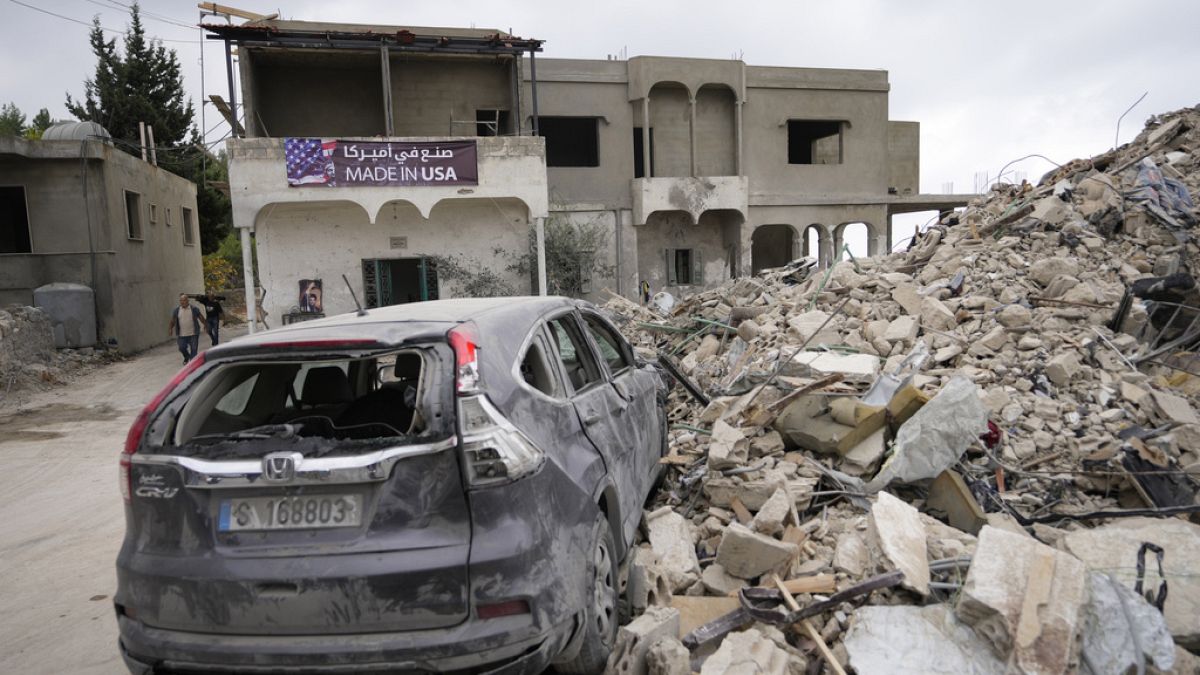Israel has been primarily focusing its military operations in the south of the country, the suburbs of Beirut, and the Bekaa Valley in the east. However, an Israeli airstrike recently hit an apartment building in northern Lebanon, killing at least 21 people. The Israeli military has not commented on the strike, leaving the target unclear. The strike hit a small apartment building that housed displaced families in the village of Aito, located in the country’s Christian heartland in the north. This area is far from the Hezbollah militant group’s main areas of influence in the south and east. Israel has issued evacuation notices to 27 villages in southern Lebanon, urging residents to relocate to the north of the Awali River to “save their lives.”
The UN’s human rights division has stated that a quarter of Lebanese territory is under displacement orders, resulting in at least 1.2 million people being displaced in Lebanon according to the Lebanese government. Amnesty International has criticized Israel’s practice of issuing evacuation orders, questioning whether this is intended to create conditions for mass displacement. Human rights groups argue that Israel’s warnings about upcoming airstrikes, which civilians receive daily, are inadequate and sometimes misleading. The increased aerial campaign by Israel has led to grave concerns about the impact on the civilian population in Lebanon.
In a separate incident, an Israeli airstrike on the courtyard of the Al-Aqsa Martyrs Hospital in Gaza triggered a fire at a nearby tent camp, resulting in the death of four people. The fire engulfed tents in the camp where displaced Palestinians sought shelter, leaving more than two dozen individuals with severe burns. The Israeli military claimed that they were targeting Hamas militants hiding among the crowd, but did not provide evidence to support this claim. The hospital, which was already overwhelmed with treating a large number of people wounded in an earlier strike on a school-turned-shelter that killed 20 individuals, faced further challenges as a result of the airstrike on the tent camp.
The ongoing military operations in Lebanon and Gaza have raised humanitarian concerns as the civilian population bears the brunt of the violence. The Israeli airstrikes have caused significant damage to infrastructure and have led to a large number of casualties. Human rights organizations have called for an immediate halt to the violence and for the protection of civilians caught in the crossfire. The indiscriminate targeting of civilian areas has been condemned by the international community, with calls for accountability for any violations of international law.
The conflict between Israel and Lebanon, as well as the ongoing tensions in Gaza, have escalated in recent days, resulting in a significant loss of life and displacement of people. The lack of clarity on the targets of the airstrikes and the impact on civilian populations have raised concerns about the indiscriminate nature of the military operations. The international community has called for a de-escalation of the violence and for all parties to respect international humanitarian law. The protection of civilians, particularly those who are most vulnerable, must be a priority in order to prevent further loss of life and displacement of people in the region.
The situation in Lebanon and Gaza remains tense as military operations continue to escalate. The need for a diplomatic solution to the conflict is paramount in order to prevent further loss of life and displacement of people in the region. The international community must continue to monitor the situation closely and work towards a peaceful resolution that respects the rights and dignity of all individuals affected by the conflict. Israel’s military actions have raised serious concerns about the impact on civilians and the need for accountability for any violations of international law. An urgent humanitarian response is needed to address the growing needs of those affected by the conflict in Lebanon and Gaza.


























